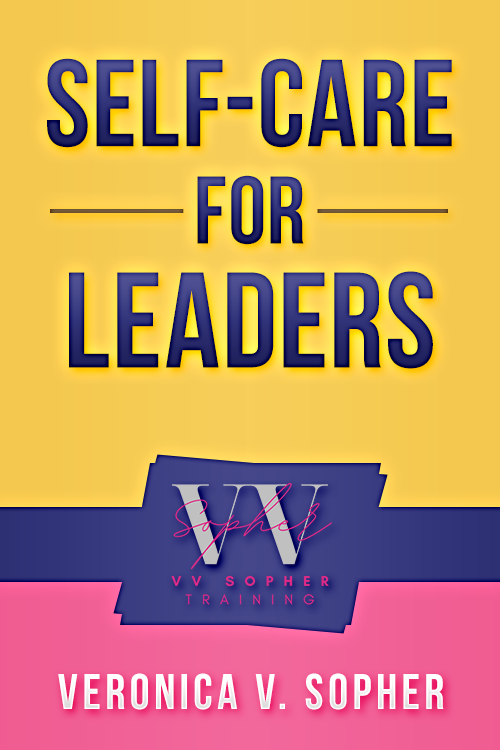As educators, it’s crucial to prioritize self-care, personal growth, and leadership development to ensure we can effectively serve our students and communities at large. Veronica V. Sopher shares practical advice on how to become the best version of ourselves, both professionally and personally. Explore the key takeaways from her course, Self-Care for Leaders, and discover tangible tools you can use to enhance your day-to-day life as an educator.
Gratitude and Social Intelligence
According to Sopher, practicing gratitude has a positive impact not only on our physical well-being but on our social and emotional intelligence. She suggests beginning staff meetings with a moment of gratitude to create a positive atmosphere and strengthen team cohesion. Incorporating gratitude into your daily routine can improve your ability to connect with others and foster cooperation.
Personal Growth and Leadership
The course emphasizes the importance of personal growth for educators, particularly in times of crisis and uncertainty. Investing in your growth means dedicating time to self-improvement activities, such as reading books on leadership development, attending workshops, or engaging in online courses. Scheduling these activities and building systems to support them can help ensure that your personal and professional development remains a priority.
Finding Your Superpower
Sopher believes that every educator has a unique “superpower” that can be harnessed to improve their effectiveness and overall well-being. To discover your superpower, she recommends taking personality tests, identifying your passions, and finding patterns in your strengths and interests. This process can help you connect with your purpose and understand how to utilize your unique gifts in the classroom and beyond.
Applying the “Oxygen Mask” Principle
One of the key concepts within the course is the “oxygen mask” principle, which emphasizes the importance of taking care of ourselves before we can effectively care for others. This analogy reminds us that, just as we’re instructed to secure our own oxygen masks on an airplane before assisting others, we must prioritize our own well-being first in order to be the best educators we can be.

To put this principle into action, consider these self-care strategies:
- Set Boundaries: Establish a clear distinction between your work and personal life. This might entail setting specific work hours and refraining from checking emails during non-work hours.
- Prioritize Physical Health: Ensure that you are getting enough sleep, eating a balanced diet, and engaging in regular exercise to maintain optimal health.
- Cultivate Emotional Wellness: Engage in stress-reducing activities such as meditation, journaling, or connecting with friends and loved ones.
- Pursue Hobbies and Interests: Schedule time for your hobbies and personal interests, as these can provide a sense of accomplishment and enjoyment outside of work.
Creating a Support System
Sopher highlights the importance of having a strong support system in place to encourage growth and provide guidance during challenging times. This can include mentors, colleagues, or friends who share your passion for education and personal development. Regularly connect with your support system to exchange ideas, discuss challenges, and celebrate successes.
Mentorship and Modeling
Mentoring is an essential aspect of professional growth for educators. It is highly encouraged to seek out mentors who can provide guidance, support, and constructive feedback. At the same time, it is crucial to recognize that you are a role model for your students and colleagues. Embrace this responsibility by modeling strong leadership, effective communication, and a growth mindset in your day-to-day interactions.
Building a Growth Mindset Culture
Creating a culture of growth and continuous improvement within your school community is vital for sustained success. Here’s some strategies to foster a growth mindset culture:
- Celebrate Effort and Progress: Recognize and reward the hard work of your students and colleagues, not just their achievements. This encourages perseverance and resilience.
- Encourage Risk-Taking: Support experimentation and innovation, and create an environment where mistakes are seen as opportunities for learning and growth.
- Promote Collaboration: Foster a collaborative atmosphere in which teachers and students can openly share ideas, challenges, and successes.
- Provide Constructive Feedback: Offer specific, actionable feedback that helps your colleagues and students to identify areas for growth and improvement.
Empowering Educators: Final Thoughts
As educators, it is essential to prioritize self-care, personal growth, and leadership development to best serve our students and school communities. By implementing Sopher’s practical advice, you can discover your unique superpower and apply it to your day-to-day life as an educator. Embrace the “oxygen mask” principle, create a support system, engage in mentorship, and foster a growth mindset culture in your school to ensure continued success.
Remember to check out Veronica V. Sopher’s course Self-Care for Leaders for more valuable insights and strategies to help you become the best educator you can be. With these tools in hand, you’ll be equipped to not only survive but thrive in the ever-evolving world of education.







